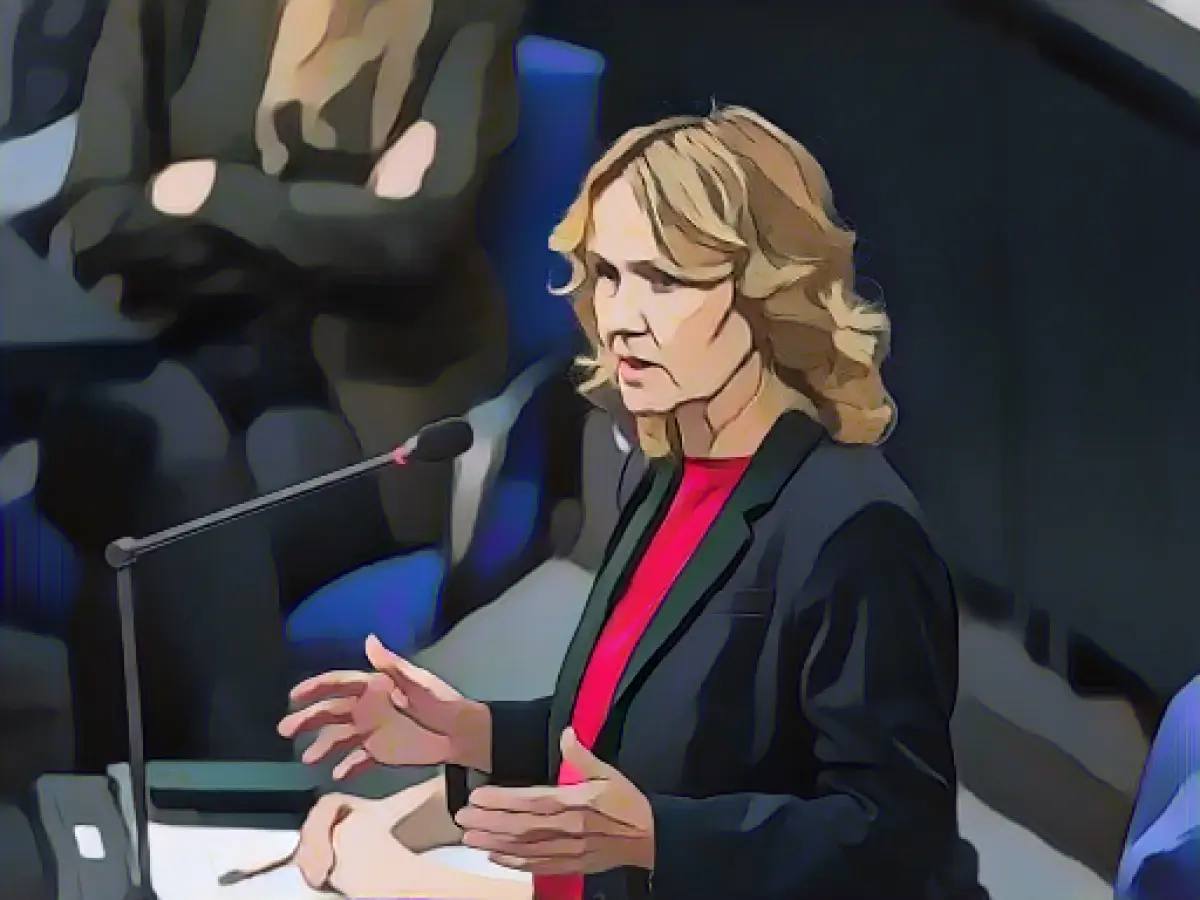Climate Adaptation Act Sails Through Bundestag, Financing Remains Elusive
The Bundestag has greenlit a new law intended to bolster climate adaptation efforts. Green Party minister Steffi Lemke, along with the SPD and FDP parliamentary groups, voted in favor of the bill. The CDU/CSU and AfD blocs opposed it, while the left-wing group abstained.
The traffic light coalition's blueprint entails mandating federal, state, and local administrations to develop binding strategies and actions. The proposed legislation aims to establish a comprehensive framework for proactive climate adaptation across Germany for the first time. The federal government will be tasked with presenting an adaptation strategy with specific targets.
Funding Conundrum
During the Bundestag debate, Lemke emphasized the importance of shielding German citizens from the devastating impacts of the climate crisis. "While climate protection and adaptation come at a cost, the absence of action would result in significantly higher expenses," she stated.
However, financing remains a significant hurdle in the legislation. The bill does not include specific funding regulations, as the federal government cannot finance local projects directly. This has only been possible for pilot projects up until now. Moreover, long-term climate adaptation projects, such as relocating dykes, require substantial investments and can span up to two decades. The legislation is slated to take effect in 2024, but the Federal Council still needs to approve it.
The Federal Constitutional Court's recent ruling on coronavirus loans further complicates the situation, potentially creating a 60 billion euro financing gap for German climate projects.
Challenging the Financing Gap
In the face of these challenges, several steps can be taken to secure financing for climate adaptation measures in Germany:
- Joint Financing Instrument:
- Agreement between the federal government and the states on a shared financing instrument for adaptation activities to expedite implementation.
- Constitutional Reform:
- Amend the constitution to make adaptation a joint responsibility between the federal government and states, securing funds for the long term.
- Municipal Support:
- The federal government can facilitate information and funding, allowing municipalities to take the lead on implementing measures, such as replacing impervious surfaces with permeable ones, planting drought-resilient trees, and upgrading sewage systems.
- Funding Programs:
- Enhance the capacity of municipalities to access and secure funding from available programs, addressing the lack of qualified personnel as a major obstacle.
- Debt Brake Exception:
- Exceptions to debt limits in extraordinary circumstances, such as natural disasters or emergencies, could provide funds for immediate climate-related needs.
- Social Climate Bonus:
- A climate bonus tied to income could offer targeted relief to the most vulnerable groups affected by rising CO2 prices.
- Debt Brake Reform:
- The debt brake should be revised to allow greater flexibility in financing climate adaptation measures, redefining what constitutes an emergency situation to include climate-related crises.
The pursuit of these initiatives could strengthen Germany's capacity to finance its climate adaptation measures, tackling persistent challenges and ensuring the country's resilience in the face of climate change.
Source:
Enrichment Data:
Securing financing for climate adaptation efforts in Germany involves addressing several challenges, including the lack of specific regulations and the impact of the Federal Constitutional Court's ruling on coronavirus loans. Here are some strategies to address these issues:
- Joint Financing Instrument:
- Collaborate between the federal government and states to create a financing instrument to expedite implementation of adaptation activities.
- Constitutional Reform:
- Secure long-term funding by enacting a constitutional amendment, making adaptation a joint responsibility between the federal government and states.
- Municipal Support:
- Serve as a central point of contact and coordinator, offering information and funding to municipalities tasked with implementing measures.
- Funding Programs:
- Enhance the capacity of municipalities to access and secure funding from existing programs, addressing the lack of qualified personnel as a major obstacle.
- Debt Brake Exception:
- Clear exceptions to debt limits in exceptional circumstances, such as natural disasters or emergencies, could allow for emergency borrowing and spending to address immediate climate-related needs.
- Social Climate Bonus:
- Distribute financial support more equitably by implementing a climate bonus scalable by income, aiding the most affected low-income earners.
- Debt Brake Reform:
- Revise the debt brake, allowing greater flexibility in financing climate adaptation measures, redefining what constitutes an emergency situation to encompass climate-related crises.








